
Top Challenges in Cost Value Reconciliation
Cost Value Reconciliation (CVR) is a crucial part of managing construction projects. It involves comparing what you actually spend with what you get in return. But, like any important process, CVR comes with its own set of challenges. This blog post will explore these challenges and provide practical ways to overcome them. By understanding and tackling these issues, construction professionals can improve how they handle costs and increase their chances of project success.

Cost Value Reconciliation (CVR) is a critical process in construction project management that involves comparing actual costs with the value generated. While CVR offers numerous benefits, it is not without its challenges. In this blog post, we will explore the top challenges faced in CVR and provide practical strategies to overcome them. By understanding and addressing these challenges, construction professionals can enhance their cost management practices and ensure project success.
Challenges in Cost Value Reconciliation
Some of the top challenges in CVR include:
Inaccurate or Incomplete Cost Data
One of the primary challenges in CVR is the availability of accurate or complete cost data. Data can be difficult to collect and maintain, especially on large or complex projects. This can hinder the accuracy and reliability of the reconciliation process, leading to skewed results. Common causes of this challenge include inadequate data collection processes, manual data entry errors and fragmented data sources.
Complexity of Construction Projects
Construction projects vary in complexity, size, and scope. CVR may be more challenging for large, multifaceted projects with numerous subcontractors, suppliers, and change orders.
Construction contracts can be highly complex, with various payment milestones and terms. Ensuring that CVR aligns with the contract terms and conditions can be challenging.
Limited Integration of Cost and Schedule Data
Effective CVR requires the integration of cost data with project schedules. Without integration, obtaining a comprehensive financial picture becomes challenging, leading to gaps and inconsistencies in data. It becomes difficult to identify cost overruns in real-time, forecast accurately, track variances, and assess the cost impacts of schedule changes. Change orders or variations are common in construction projects and can impact cost and schedule significantly. Tracking and reconciling variations accurately within the CVR system can be complex, especially when multiple variations are involved, resulting in delays, disputes, and inaccuracies in cost reconciliation.
Inadequate Communication and Collaboration
Successful CVR relies on effective communication and collaboration among project stakeholders. Inadequate communication and collaboration in construction can significantly affect the implementation of CVR. Poor communication leads to data inconsistency, delayed information sharing, misunderstandings, and errors in interpreting project requirements and financial data. This lack of communication also hampers visibility into project status. It disrupts workflows, making it difficult to track and reconcile costs effectively—moreover, limited collaboration results in missed cost control and value engineering opportunities.
Limited Awareness and Training
Limited training and awareness can hinder the implementation of CVR in construction. With proper understanding and skills, project stakeholders may recognise the importance and benefits of CVR, leading to resistance to change and inconsistent implementation. The lack of training can result in errors, inaccuracies, and missed opportunities for improvement in cost reconciliation processes. Additionally, limited awareness may delay decision-making and prevent timely corrective actions.
How to Overcome the Challenges of Cost Value Reconciliation
Several things can be done to overcome the challenges of CVR. These include:
1. Implementing a robust data collection and management system: To improve the integration of cost and schedule data, it is essential to implement a robust data collection and management system. This can involve the use of automated systems or integrated data capture tools that streamline the collection of data from various sources. Regularly auditing and verifying the accuracy of the data ensures its integrity and reliability. Integrating multiple data sources within a centralised system eliminates fragmentation and improves data accessibility, making reconciling cost and schedule information more easily.
2. Utilise an integrated construction ERP system: Implementing an integrated construction Enterprise Resource Planning (ERP) system, such as 4PS Construct, can facilitate the seamless integration of cost and schedule data. An ERP solution can provide a unified platform for synchronising cost updates with project milestones and progress tracking. This integration allows real-time visibility into project costs and progress, making it easier to reconcile cost value data accurately.
3. Communicate with stakeholders: Effective communication is vital for aligning cost and schedule data in construction projects. It is crucial to foster a culture of open communication and establish a collaborative environment where project stakeholders work together. Regular project meetings, progress updates, and communication channels should be established to ensure that relevant cost and schedule information is shared transparently among all stakeholders. Clear and consistent communication helps minimise misunderstandings and ensures everyone can access the most up-to-date data for accurate cost value reconciliation.
4. Training staff on CVR: Conducting workshops and training sessions is essential to educate project stakeholders on CVR. These training sessions should cover the principles and methodologies of CVR and the specific processes and tools used for implementation. Resources such as user guides, manuals, and online tutorials can support ongoing learning and development. Engaging external experts who can offer additional guidance and training to ensure that staff members have the necessary skills and knowledge to implement CVR processes effectively.
Conclusion
Cost Value Reconciliation is valuable for managing project costs and assessing their value. While challenges may arise, by addressing issues related to data accuracy, standardisation, integration, communication, and training, construction professionals can overcome these hurdles and maximise the benefits of CVR. Embrace these strategies, use advanced technology solutions, and elevate your CVR practices to drive project success and profitability.
Consider our Construction ERP software solution, 4PS Construct, to ensure seamless CVR in your construction projects. Our fully integrated software solution provides robust cost management features, integration capabilities, and advanced reporting functionalities. Contact us today to learn more about how our solution can support your cost management objectives.
Ready to take your construction projects to the next level?
Download our whitepaper on Cost Value Reconciliation today. Discover how CVR can empower your project management with invaluable cost insights, helping you control expenses, enhance decision-making, and drive continuous improvement. Ensure your construction projects are financially sound and efficient by harnessing the power of CVR. Don’t miss out – grab your whitepaper now and unlock the secrets to success in the construction industry!
-
Share:

Elliot Herdman | Elliot has over 20 years experience in the construction industry working with main contractors, subcontractors, M&E, supply and install analysing their business processes and implementing digital software solutions to improve projects, drive efficiencies and meet the growing needs of clients.
